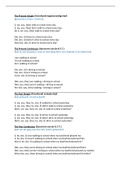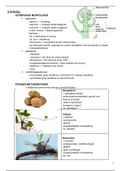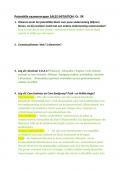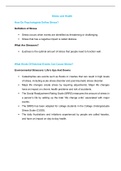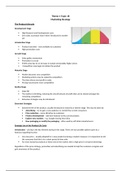Samenvatting
Summary The tenses Engels
- Vak
- Engels
- Instelling
- ROC West-Brabant
The tenses in het Engels, dus tips etc. De 10 tijden voor het gebruiken van de grammatica tijdens het schrijven in het Engels. Dus wanneer je welke tijd moet gebruiken.
[Meer zien]
